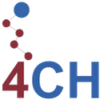The CaTCH Conference will be held in a hybrid format on Monday the 23rd October in Maribor, Slovenia. The programme, which covers a wide range of topics, and registration can be found on the Conference website. Registration is free.
CaTCH Overview
Cultural Heritage (CH), whether tangible or intangible, along with contemporary creation, is the unifying thread of the past, the present and the future of our societies. Besides offering knowledge about the past, our interaction with CH comes in the form of experiences that: raise awareness about ideas and values, instigate emotions, as well as foster reflection and communication. A holistic approach towards unleashing CH’s full potential includes a variety of actions, from research to active citizen participation and cross-sectoral diffusion. Specifically:
- Study of the past. Activities in this dimension include the systematic study of historical data, as well as, the interpretation of CH artifacts in their era.
- Study of the present. The interactions of citizens with CH, ranging from museum visits to participation in performances and other contemporary creations, become stimuli to study and understand human behaviour.
- Public engagement/ (civic) education. The knowledge and interpretations gained through the study of CH, can be exploited to design the tools that encourage public engagement, and (educational) activities that cultivate tolerance and foster inclusion.
- Storytelling. Often intangible cultural knowledge is incorporated in stories – stories about tangible objects or cultural actors, but also stories about cultural values (e.g. fairy tales).
- Innovation. Digital technologies and computational methods, allow us to systematically capture and embody the accumulated knowledge and data. In turn these activities are not only fed-back to actions within the CH domain, but can also contribute to transferring this knowledge to other sectors, including AI and policy-making.
Naturally, each of the aforementioned actions faces many challenges, including curation and multilingualism, collecting data from the wild, linking different data sources, reaching-out to diverse communities, interconnection and interoperability of methods and knowledge. The goal of the CaTCH conference is to gather scholars and experts from various fields involved in the process of capturing and diffusing knowledge and experiences related to CH, in order to promote inclusive and forward-looking practices within the actions on cultural heritage.
